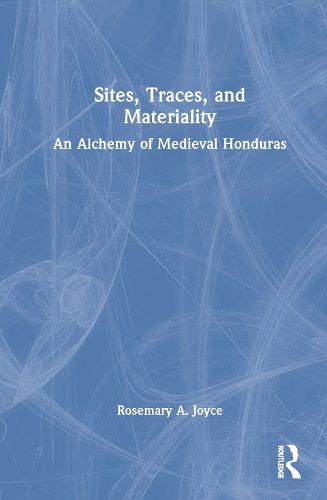Readings Newsletter
Become a Readings Member to make your shopping experience even easier.
Sign in or sign up for free!
You’re not far away from qualifying for FREE standard shipping within Australia
You’ve qualified for FREE standard shipping within Australia
The cart is loading…






Sites, Traces, and Materiality proposes a new materialist model for archaeology that brings together the concept of site ontology from geography, a novel analysis of archaeological materiality as traces, and engagement with the concept of animacy hierarchy, in order to explore how geological materials can be reconceived as active.
Using a sustained analysis of ancient Honduras, the book provides a contribution to global medieval studies showing how the concept of alchemy can help foreground the kinds of experiential knowledge indigenous people used to advance their technological engagements with mineral matter. Addressing a concern often raised with new materialist work in archaeology, the book relies on indigenous philosophy of the contemporary and historic Lenca people-- the descendants of the people who created the archaeological locales the book examines-- for guidance on how to think about minerals as lively. Taking seriously contemporary Lenca concerns with threats to water and land from global industries, the book links the archaeological case study to the present day politics of mineral extraction.
Intended for readers interested in history, archaeology, and cultural studies, the book is accessibly written and appropriate for students as well as academics.
$9.00 standard shipping within Australia
FREE standard shipping within Australia for orders over $100.00
Express & International shipping calculated at checkout
Sites, Traces, and Materiality proposes a new materialist model for archaeology that brings together the concept of site ontology from geography, a novel analysis of archaeological materiality as traces, and engagement with the concept of animacy hierarchy, in order to explore how geological materials can be reconceived as active.
Using a sustained analysis of ancient Honduras, the book provides a contribution to global medieval studies showing how the concept of alchemy can help foreground the kinds of experiential knowledge indigenous people used to advance their technological engagements with mineral matter. Addressing a concern often raised with new materialist work in archaeology, the book relies on indigenous philosophy of the contemporary and historic Lenca people-- the descendants of the people who created the archaeological locales the book examines-- for guidance on how to think about minerals as lively. Taking seriously contemporary Lenca concerns with threats to water and land from global industries, the book links the archaeological case study to the present day politics of mineral extraction.
Intended for readers interested in history, archaeology, and cultural studies, the book is accessibly written and appropriate for students as well as academics.